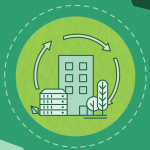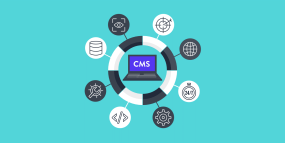
Welcome to our comprehensive step-by-step tutorial on setting up your own website. In this guide, we will provide you with all the necessary information and guidance to create a successful online presence. Whether you are a beginner or have some experience with website development, this tutorial will help you navigate the process smoothly and efficiently.
The Importance of Hosting Solutions
Before we dive into the details, let’s first understand the significance of hosting solutions. A reliable and efficient hosting provider is crucial for the success of your website. Hosting solutions ensure that your website is accessible to users around the clock and provide the necessary infrastructure to store your website’s files and data. With the right hosting solution, you can enhance your website’s performance, security, and overall user experience.
Selecting the Perfect Web Hosting Solution
Choosing the right web hosting solution is a critical decision that can greatly impact your website’s success. Here are some key factors to consider when selecting a hosting provider:
1. Server Hosting Web: Understanding Different Types of Hosting
There are various types of hosting available, each catering to different website needs. The most common types include shared hosting, virtual private servers (VPS), dedicated servers, and cloud hosting. Consider your website’s requirements, such as traffic volume, resource needs, and scalability, to determine the most suitable hosting type for your project.
2. Evaluating Web Hosting Plans
Once you’ve determined the hosting type, it’s essential to assess the hosting plans offered by different providers. Compare factors like storage space, bandwidth allocation, email accounts, security features, and customer support. Ensure that the hosting plan aligns with your website’s needs and growth potential.
3. Exploring Free Web Hosting Options
If you are on a tight budget or have limited needs, free web hosting can be a viable option. While it may come with certain limitations, such as ads on your website or limited resources, it can be a good starting point for beginners or small-scale projects. Evaluate the pros and cons and choose a reliable free hosting provider if it suits your requirements.
Actionable Tips for Successful Website Setup
To help you optimize your website setup process, we’ve compiled some actionable tips and advice:
- Optimize Your Website’s Loading Speed: Slow-loading websites can drive away potential visitors and negatively impact your search engine rankings. Optimize your website’s loading speed by compressing images, leveraging caching techniques, and minimizing unnecessary code. This will ensure a smooth and efficient user experience.
- Implement Responsive Design: With the increasing use of mobile devices, it’s crucial to have a responsive website design that adapts seamlessly to different screen sizes. Responsive design enhances user experience and improves your website’s visibility in search engine results.
- Focus on SEO: Search engine optimization (SEO) plays a vital role in driving organic traffic to your website. Research relevant keywords, optimize your content, and ensure proper meta tags and descriptions are in place. Regularly update your website with fresh and valuable content to maintain search engine visibility.
Frequently Asked Questions (FAQs)
Here are some common questions related to website setup:
Q1: How long does it take to set up a website?
Setting up a website can vary in time, depending on factors such as your familiarity with the process, the complexity of your website, and the availability of resources. However, with the right guidance and tools, you can set up a basic website in a matter of hours.
Q2: Do I need coding skills to create a website?
No, you don’t necessarily need coding skills to create a website. Content management systems (CMS) like WordPress offer user-friendly interfaces that allow you to build websites without extensive coding knowledge. However, having a basic understanding of HTML and CSS can be beneficial for customization purposes.
Q3: How much does web hosting cost?
Web hosting costs can vary depending on the type of hosting, the hosting provider, and the features included in the hosting plan. Shared hosting is generally the most affordable option, starting at a few dollars per month, while dedicated servers and cloud hosting can be more expensive. Consider your website’s needs and budget when selecting a hosting plan.
Q4: Can I switch hosting providers in the future?
Yes, it is possible to switch hosting providers in the future. However, the process can be complex and time-consuming, involving tasks such as website migration and DNS updates. It is advisable to choose a reliable hosting provider from the beginning to avoid the hassle of switching later on.
Q5: Is website security important?
Yes, website security is of utmost importance. Implementing security measures such as SSL certificates, strong passwords, regular backups, and software updates helps protect your website from cyber threats and ensures the safety of your visitors’ data.
Conclusion
Congratulations! You have now gained valuable insights into the step-by-step process of setting up your own website. By selecting the right hosting solution, optimizing your website’s performance, and following best practices, you can create a successful online presence. Remember to keep your website updated, provide valuable content, and adapt to the ever-changing digital landscape. Good luck with your website setup journey!








